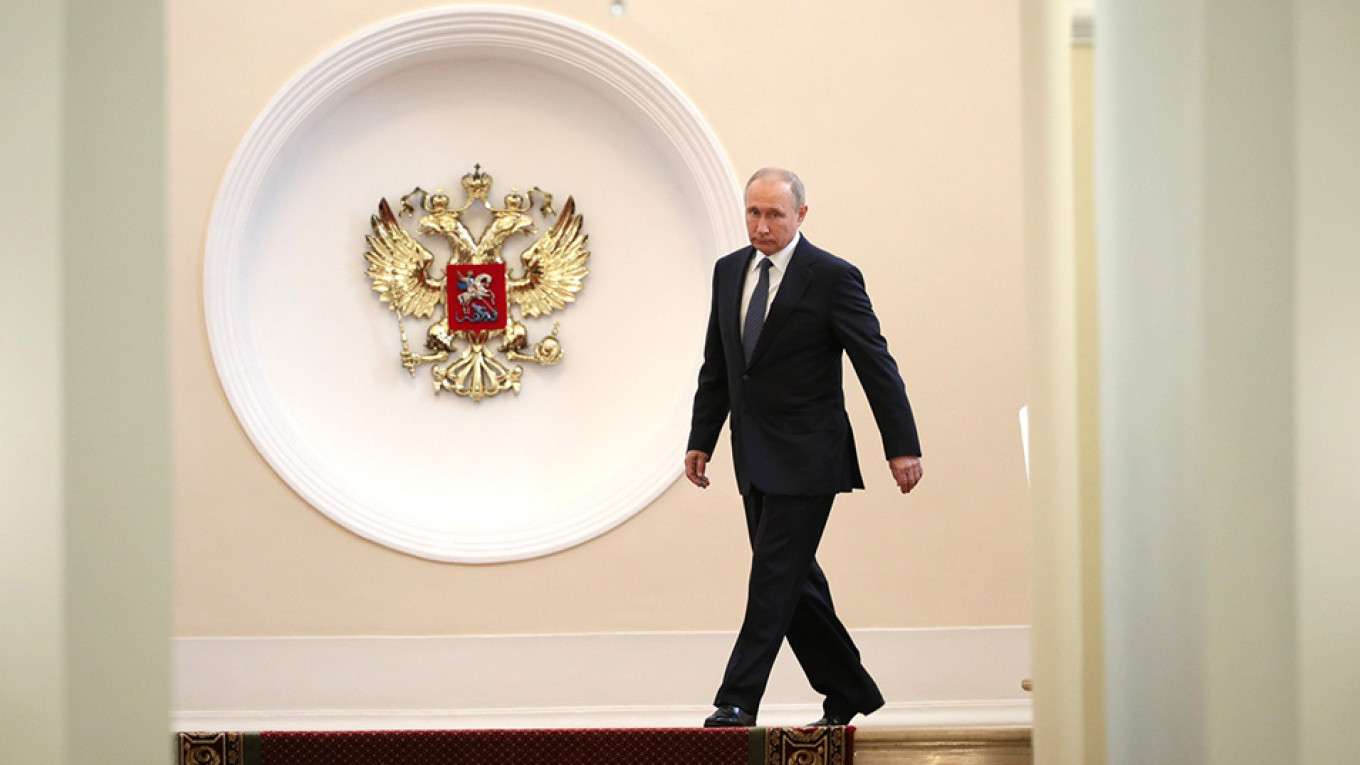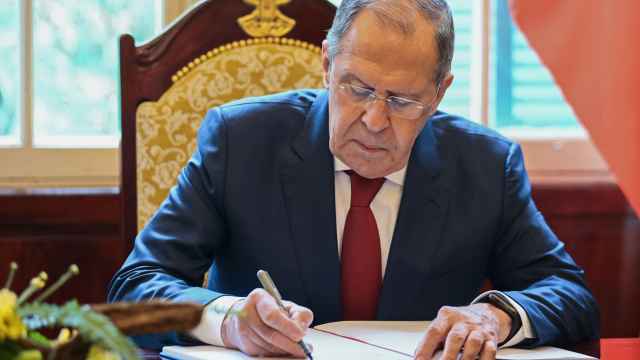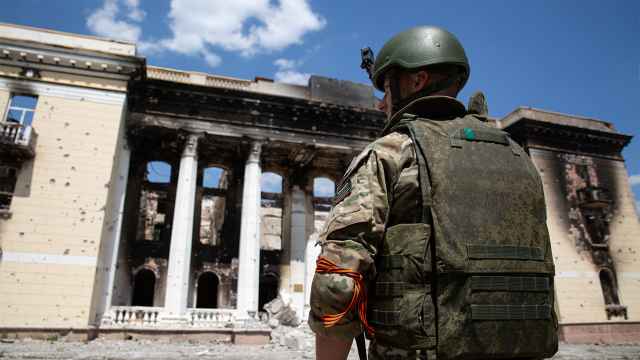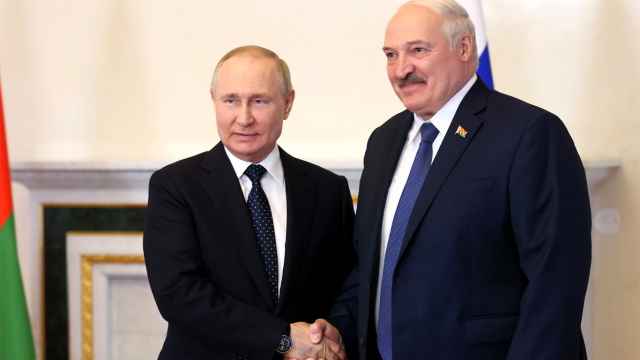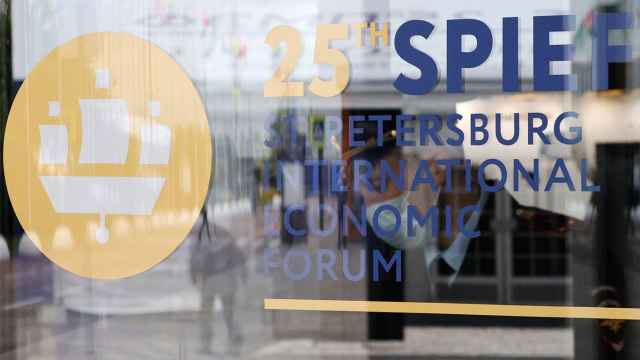A man is walking along the street sighing to himself “what a miserable life.”
Two KGB officers run up to him shouting “you are under arrest!” “Wait, that’s not what I meant,” he tries to explain. “I mean life in America is miserable!” “Shut up! We know where life is miserable!”
I was reminded of this Soviet joke by the latest turn of the screw in Russia. The crackdown on civil society, culminating in the designation of Alexei Navalny’s anti-corruption foundation as “extremist,” and arrests of lawyers, journalists and academics, has brought dark Soviet humor back into vogue.
The return of Soviet jokes points to eerie parallels between Russia’s painful present and its even more painful recent past.
True, these parallels can be overemphasized. The glitter and prosperity of urban Russia stands in stark contrast to drab Soviet realities. Even the level of state-sponsored oppression — bad as it is — falls far, far short of the grim bar reached in the years of the Stalinist bloodbath, and indeed compares favorably even with the fluffiest, happiest years of Brezhnev’s socialism.
But to speak of parallels, without overstating them, is to draw attention to a characteristic that the current regime shares with its Soviet predecessor: Its lack of political legitimacy and the consequent necessity to rely on both repression and the invention of legitimization narratives to cover up the gaping hole of the regime’s democratic deficit that results from its failure to hold free and fair elections.
While the similarities between the Soviet and Russian regimes’ use of force to silence opponents raise no intellectual objections, one might perhaps disagree with the argument that both regimes have relied on narratives of legitimation. One could argue that while the Soviets did have such a narrative — Marxist-Leninist ideology — Putin and co. have little to dress themselves in to mask their brutal, cynical pursuit of power.
Not so fast. For, indeed, on closer inspection it turns out that Putin’s regime is every bit as ideologically sound as its Soviet predecessor. At the fundamental level, both justify their rule and their brutality with references to freedom.
Freedom! Is this another Soviet joke?
Consider the Soviet narrative of legitimation.
The purpose of the Soviet experiment was, broadly speaking, to free the Soviet (wo)man from oppression and exploitation. The Bolshevik revolution was supposed to have accomplished that, but for the next 70 plus years the Soviet regime was ostensibly defending its citizens from externally imposed oppression, which prevented the realization of the true freedom promised by the revolution.
That narrative of legitimation sustained the Soviet political elite, helping to explain away the “miserable life” of our protagonist above. But after a while the narrative could no longer be sustained. Life turned out to be too miserable, and the long-promised freedom too ephemeral. The regime collapsed.
Similarly, Putin’s regime vows to defend Russia against Western encroachment. Suppression of civic freedoms is justified with reference to the preservation of greater freedom, national freedom. Framing independent media as foreign agents and labeling Navalny and his followers political “extremists” acting at the behest of foreign powers are more than acts of brutal repression, they are mechanisms of regime legitimation.
The mechanisms are therefore exactly the same as those used in the U.S.S.R. In fact, they are exactly the same for authoritarian regimes of all persuasions. They all justify their existence with reference to freedom, because none can afford to rely on brute force alone. Only some do it better than others.
Putin has an advantage though, insofar as life in Russia is perhaps not quite as miserable today as it was under the Soviets.
The fact that Russia is under pressure externally clearly adds credibility to the regime’s narrative about what the Soviets used to know as “capitalist encirclement.” That encirclement doesn’t look any less threatening today, even though Russia itself is every bit as capitalist as its Western neighbors.
Putin’s regime has thus found a way to legitimize itself. Not through elections — these have been and will remain fake — but through a narrative, and one that is even reasonably convincing.
Who will believe such rubbish, you ask? Why, the same people who believed in freedom through communism. We believed in it. We laughed at our naiveté. But here we go again.
Not everyone buys the narrative. There are dissenters who see through the propaganda. Some are already in prison like Navalny. Others are still willing to take to the streets. Yet others are muttering only to themselves, in half-resignation, “life is still miserable.”
And then there are others, just telling jokes. Because if you can laugh at it, perhaps the regime is not quite as scary after all.
A Message from The Moscow Times:
Dear readers,
We are facing unprecedented challenges. Russia's Prosecutor General's Office has designated The Moscow Times as an "undesirable" organization, criminalizing our work and putting our staff at risk of prosecution. This follows our earlier unjust labeling as a "foreign agent."
These actions are direct attempts to silence independent journalism in Russia. The authorities claim our work "discredits the decisions of the Russian leadership." We see things differently: we strive to provide accurate, unbiased reporting on Russia.
We, the journalists of The Moscow Times, refuse to be silenced. But to continue our work, we need your help.
Your support, no matter how small, makes a world of difference. If you can, please support us monthly starting from just $2. It's quick to set up, and every contribution makes a significant impact.
By supporting The Moscow Times, you're defending open, independent journalism in the face of repression. Thank you for standing with us.
Remind me later.



